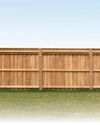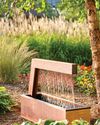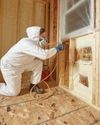
Pollen, whether from grasses or flowering trees, is the most convenient scapegoat for allergy sufferers whose immune systems react to the airborne dust. But indoor dust with a high presence of dust mites is equally to blame. And it can cause problems for people with asthma too.
In guidelines for those with asthma and allergies, the National Institutes of Health (NIH) recommends multiple strategies to reduce allergens, such as using pillow and mattress covers that prevent dust mites from passing through and using high-efficiency particulate air (HEPA) filtration vacuum cleaners.
Dust mites-microscopic arthropods can be anywhere and everywhere. With the exception of Antarctica, every continent reports dust mites. And here's the scary part: According to the Asthma and Allergy Foundation of America (aafa.org) website, dust mites "feed mainly on the tiny flakes of human skin that people shed each day. These flakes work their way deep into the inner layers of furniture, carpets, bedding and even stuffed toys. An average adult person may shed up to 1.5 grams of skin in a day. This is enough to feed one milon dust mites!"
Beyond simply sharing the creepy truth about dust mites, the AAFA certifies several indoor household items as Asthma and Allergy Friendly. Many product manufacturers make marketing claims about "hypoallergenic" or "allergy-friendly" products, but no federal standard or regulation governs the use of those terms. The Asthma and Allergy Friendly Certification Program is a partnership between the Asthma and Allergy Foundation of America and Allergy Standards Limited (ASL). Together these groups test products and will certify those they deem can "improve the air quality and health of homes."
A wide range of home products have earned the Asthma and Allergy Friendly certification, including:
■ HANDHELD DUSTERS: Guardsman Dusting Cloths
هذه القصة مأخوذة من طبعة June 2022 من Family Handyman.
ابدأ النسخة التجريبية المجانية من Magzter GOLD لمدة 7 أيام للوصول إلى آلاف القصص المتميزة المنسقة وأكثر من 9,000 مجلة وصحيفة.
بالفعل مشترك ? تسجيل الدخول
هذه القصة مأخوذة من طبعة June 2022 من Family Handyman.
ابدأ النسخة التجريبية المجانية من Magzter GOLD لمدة 7 أيام للوصول إلى آلاف القصص المتميزة المنسقة وأكثر من 9,000 مجلة وصحيفة.
بالفعل مشترك? تسجيل الدخول

7 Bicycle Maintenance Tips
Keep your bike in tiptop shape and ride safe!

SETTING FENCE POSTS WITH EXPANDING FOAM
Any fence builder knows you need strong posts for a strong fence, and that means backfilling the postholes with a dense, hard material other than dirt.

PEBBLE MOSAIC STEPPING STONES
COLLECT SOME RIVER ROCK AND MAKE YOUR OWN UNIQUE STEPPINGSTONE PATH

EARTH-FRIENDLY WEED KILLERS
HEALTHIER CHOICES FOR HUMANS AND THE ENVIRONMENT

DIY! HYDROPONIC GARDEN
FRESH VEGETABLES AT YOUR FINGERTIPS

GROW MINI VEGETABLES
GROW A GARDEN IN A TINY SPACE!

BUILD A VERTICAL GARDEN
TIME TO GROW UP!

MODERN WATER FOUNTAINS
A SPLASH OF PEACE FOR YOUR PATIO

9 ALTERNATIVE USES FOR SAWDUST
Every fully stocked wood shop has a table saw. You can usually find a pile of sawdust under it, even if it's used only occasionally. If a shop has a belt sander or band saw, there's probably another pile of finer sawdust under that. Even people without stationary tools have sawdust accumulation on their workbenches.

INSULATE WITH FOAM
IT'S A GREAT ALTERNATIVE TO FIBERGLASS